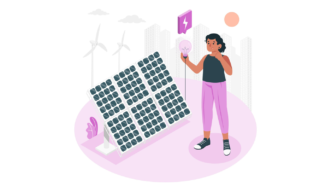LESSON OVERVIEW
This lesson about protests includes a lot of speaking practice. Students talk about two famous people and have a discussion about them. They also watch a video about what makes a protest successful and analyse some strategies.
C1 / Advanced60 minStandard LessonPremium Plan
WARM-UP & READING
The lesson starts with students discussing what they know about two people that ignited world-wide protests. After that, they read two short texts about them and compare the information to what they have shared in the previous activity. Then, students talk about these protests more as well as share their experience participating in similar events. This lesson about protests also offers students a chance to learn some vocabulary related to making social changes. The vocabulary exercise is followed by a speaking activity where students have to agree with one of the statements and explain why.
VIDEO & DISCUSSION
In this part of the lesson, students watch a video about three strategies for a successful protest. The video is broken down into two parts. At first, students watch the introduction and answer the questions about what protests can do and why they are not always sufficient. After that, they watch the second part of the video and focus on the strategies. Students have to summarize the strategies using the statements they discussed in the previous exercises. It is followed by a discussion. Students talk about the video, share their opinion on some statements, and discuss generating lasting change.
SPEAKING PRACTICE
To wrap up this lesson about protests, students look at the notes of animal rights activists and discuss them. The notes contain information on strategies and the means for a protest. Students decide whether such a fight is sufficient and can be successful. There is one more activity for students that teachers are advised to use at their discretion. In this activity, students work in groups and choose a cause from a list of ideas or come up with an idea they are passionate about. After that, they brainstorm strategies and means for their fight. Finally, students share their ideas with the class.
Subscribe to unlock these and many other Standalone lesson with the Premium planWORKSHEETS













Thank you for shedding light on the current protests happening Iran.
This is such a great lesson material, appreciate that!
Thank you! We think it’s imperative that students talk about such important issues.
This is just great, thank you ever so much!
Thank you! We’re glad you like it 🙂
I am blocked from Google Docs so I can’t access e-lessons, is there a way to download the presentations?
Andrea, there’s no other way than accessing them in Google Slides as we create them there and not as pptx. However, I’m curious why you are blocked from using Google Docs? I haven’t seen that happening before.